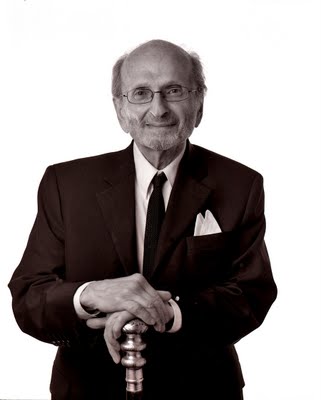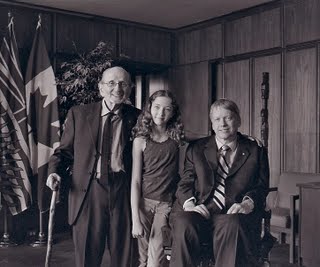
The web can make you feel smart. Sometimes in its very shortcomings it can help you learn.
A few days ago Abraham Rogatnick (he was in hospital and not well) and I were discussing a favourite architect of his, the Venetian Andrea Palladio (1508-1580). I had brought him a book (Rosemary’s) called All-Italy – The Book Of Everything Italian. I showed him the page that featured Palladio. It was a majestic photograph of Palladio’s church Il Redentore on the bank of the Grand Canal in Venice. After Abraham looked at the picture he began to trace his fingers on the façade, ever so gently, as he carefully explained (it took about 30 minutes) why this church is one of Palladio’s most famous buildings, “He hid the buttresses on the side, like this and you almost do not notice them.”
I returned the next day having done my homework by looking up Palladio on the internet. “Abraham,” I asked him, “does the name Andrea di Pietro della Gondola ring a bell?” “That’s a well known Venetian name, but that particular one does not ring a bell at all.” I triumphantly felt I had finally caught Abraham at something I knew that he didn’t know. “Abraham, that’s Palladio’s real name.” Abraham looked at me and smiled. He then said, “That may have been his real name but that was not the name that defined him. The name Palladio was given by a patron. It comes from Pallas Athena the goddess of wisdom. His patron thought your Andrea della Gondola was a wise man and so gave him, my Palladio his nickname.” I felt a tad ashamed and suddenly a bit smarter.
Months before, Abraham had explained to me how Palladio had influenced Francis Rattenbury in his two most famous BC structures, the current Vancouver Art Gallery and our House of Legislature. It seems that Palladio’s country homes for the Italian rich had a central structure and two wings. One of the wings would have the chickens and the goats and the other perhaps the kitchen. With a twinkle in his eyes and without telling me more Abraham left me wondering and to figure out for myself which side of our legislature housed the chickens and the goats and which the kitchen.
Yesterday Thursday was my last day at school. My final lesson with Abraham began when I called him at four, “Bring me a Globe if you can find one at this time of the day.” On my way to the hospital I bought the last copy of the Globe at the 12& Cambie Safeway. Before I even gave the Globe to Abraham I got rid of the business section and the life section. Abraham had no use for them. As we chatted for an hour I had no way of knowing that the last Safeway Globe would be Abraham’s last Globe.
Death to Abraham as he told me, “It is as easy as the light switch on that wall. One moment it’s on, the next it’s off.”
This morning I got a call from Lynn Zanatta and Sam Sullivan that Abraham was not responsive. When I got there, the man on the bed was no longer the Abraham I had loved and known. It was the light switch in an almost off position. I spied a tear under his left eye. It would have to make do for the tears I have not been able to shed since I learned that Abraham died today in the afternoon.
I picked up Rebecca (my 12-year-old granddaughter) at noon and told her that Abraham was going to die today or tomorrow. “Do you think I should go to see him?” she asked me. I wasn’t sure and did not answer. When I got the call from Lynn that Abraham had died I told Rebecca that it was best that she remember him when she saw him last, holding court from his sofa some weeks ago in the presence of architect Bruno Freschi and poet George Bowering.
Last year when I took Rebecca to visit Sam Sullivan at his office (he was still the mayor) we were joined by Abraham who was going to give Rebecca (naturally!) an explanation on Art Deco architecture. Rebecca looked at Abraham and said, “It occurs to me that you and Obama have something in common. You both hold a degree from Harvard.” Abraham looked at Rebecca and with that endearingly cocky attitude of someone who is very sure of himself loudly countered, “We are different, too. He has one Harvard degree but I have two.”

Rebecca and I did celebrate Abraham’s life in our own way. We walked in the garden. I tried not to look at the English Roses. I had taken some to the hospital. Abraham had particularly liked Rosa 'Abraham Darby'. Then Rebecca dictated to me the essay on how to get children to garden for the American Hosta Society Journal. We went to town and had Indian food at the India Gate on Robson. From there we enjoyed a wonderful, cerebral and melancholy film called Moon. Without having to talk, both of us were aware that having known Abraham has been good not only for our hearts but for our brains. It was that fine balance, between brain and heart that made Abraham Jedidiah Rogatnick the unique person he was.